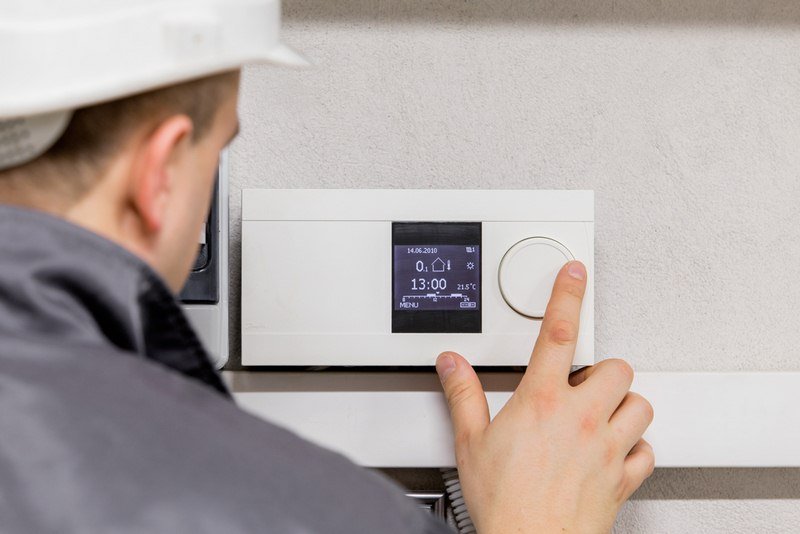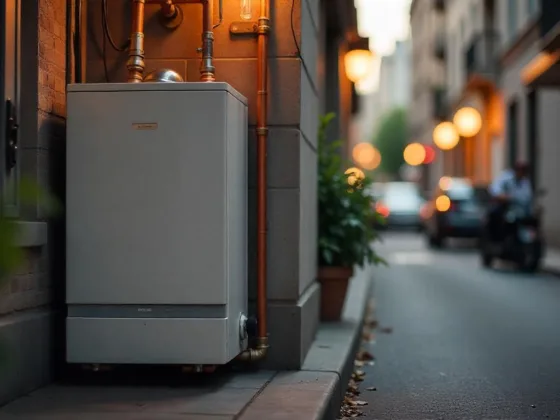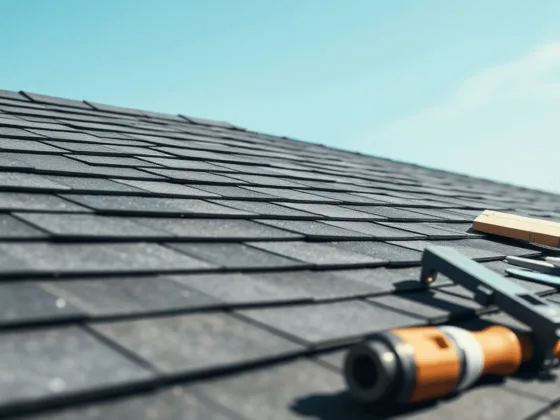Table of Contents Show
So, you’ve finally unpacked all those moving boxes in your new home. Your furniture is in place, the wallpaper in your bedroom is ready, and the pictures of your childhood are hanging in frames on the walls.
But, before you conclude you’re ready to settle down with your family, make sure to go around the house to check if there is a heating, ventilation and air conditioning (HVAC) system.

If you don’t have one, consider having one installed. Why? Here are the benefits of installing an HVAC system in the home:
1. Keeps Temperatures Inside At The Right Levels
The thing about an HVAC system is that it combines the heating and the cooling functions in one device. When the HVAC system senses that the temperature in the house is way above the pre-set temperature, it pumps out cold air until the house temperature reaches the desired pre-set level.
On the other hand, when it senses that the temperature is way below the temperature previously set, it pumps out hot air to reach the pre-set temperature level.
The temperature level that provides comfort to occupants in a home primarily depends on the occupants themselves, who have varying body temperatures. There are, however, generally accepted temperature standards depending on the circumstances and the season.
Here are some of them:
- During the summer, the standard indoors is 20 degrees Celsius.
- During the winter, the standard indoors in vast spaces is 22 degrees Celsius.
- During the winter and at night, the standard in occupied rooms is 17 degrees Celsius.
Heating Sudbury, where winter nights can reach below -30 degrees Celsius, is possible with HVAC systems.
2. Improves Air Quality Inside The House
Contrary to popular perception, pollution is not only limited to the outside. With the World Health Organization estimating 1.5 million annual deaths from the inhalation of indoor pollutants, indoor air pollution is just as deadly.
These indoor pollutants include:
- Particulate matter from cigarettes: A study found that the particulate matter in cigarette smoke causes an increase in iron levels in the person who was exposed to that smoke. This increase in iron levels leads to inflammatory injuries in the lungs.
- Chemicals from household cleaning and personal care products: The fragrance in household products, such as dish soap, toilet paper, and air fresheners contains phthalates, which are harmful to the endocrine system.
- Excess moisture: This can lead to mold, which can lead to eye irritation, coughs, and throat irritation, among others.
- Carbon monoxide from fuel-burning appliances: Some generators, for instance, produce this highly poisonous and colorless gas if combustion is incomplete. Check out on EnstorageInc to know details about such generators.
HVAC systems dilute the indoor contaminants and remove them from the air through ventilation. Their filtration systems also allow for the cleansing of the air, while removing excess moisture and reducing humidity.
Just make sure the filters are cleaned on a regular basis. Air filters are one of the common things that go wrong in HVAC systems, and it’s usually because of the dust and dirt that gather inside.
3. Helps Conserve Energy and Electricity
With an HVAC system, homeowners don’t need to install heaters and air conditioning units separately in different rooms.
This means that there’s less energy consumption (and therefore less electricity consumption) as fewer devices are working to keep temperatures at acceptable levels and ensure good ventilation.
But, it’s not only the combined functionality of an HVAC system that enables the homeowner to conserve energy. There are HVAC system types that further enable energy conservation because of their unique features.
Below are only some of those types:
Ductless HVAC System
This is also known as a mini-split HVAC system. Since this type has no ductwork, less energy is wasted on possible leaks.
Variable-Speed HVAC System
This type can change the speed of its fan, which means the system doesn’t need to turn on and off on its own to move air and perform its heating, cooling, and ventilation function.
This means that it requires less energy to work and do its job (remember that when a device is turned on from its switched-off state, more energy is required).
Solar-powered HVAC System
This type uses solar energy to work. It can be either one of two types:
Solar-Electric HVAC System
To work, this type derives energy from two sources—the electricity provided by the structure in which it’s built and solar panels.
Solar A/C with Superheated Refrigerant
In this type, the cooling function is diverted to a solar refrigerant placed on the roof.
Conclusion
As homeowners protect themselves and their loved ones from problems caused by air pollution and climate change, an HVAC system is more of a necessity than a luxury nowadays.
But, it’s not only this responsibility to themselves and their family they fulfill when they decide to install and use an HVAC system in their homes. They also fulfill their responsibility as citizens of the environment, which benefits from a reduced carbon footprint.
In short, with HVAC systems, homeowners keep themselves, their loved ones, and Mother Nature happy.










